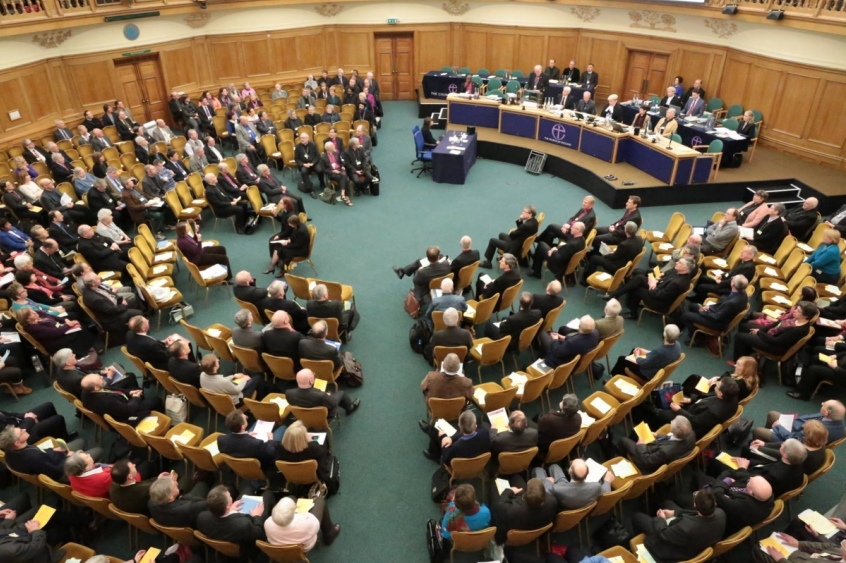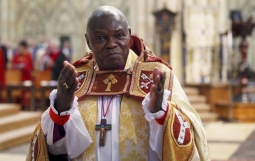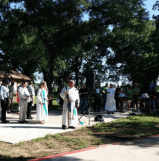At least four openly gay clergymen have been elected to the General Synod of the Church of England.
One is married, two are in civil partnerships and the fourth is planning to seal his relationship with a civil ceremony.

Early results show many openly-gay clergy winning election to the synod, the governing body of the Church, at a time when the Archbishop of Canterbury, Justin Welby, is attempting to find a way to prevent the total fragmentation of the Anglican Communion over the issue of homosexuality.
One solution will be to change the structure to a looser, more federal organisation in which the more liberal provinces could thrive more easily alongside conservative evangelical churches.
More results are expected throughout the week, including to the House of Laity where several gay activists have gone up against conservative evangelicals. Early results however indicate significant victories for the liberal wing, after a decade when evangelicals seemed dominant.
The four included Rev Bertrand Olivier, vicar of All Hallows by the Tower, who tweeted: "Very excited to have been elected to #generalsynod today, and looking forward to working for an @inclusivechurch in the next 5 years."
Father Andrew Foreshew-Cain, who married his partner Stephen Foreshew last June, was among those chosen to serve on the Synod by more than 400 clergy electors for the London diocese. He told Christian Today: "It is a slightly daunting prospect. I hope there is a place for us in the Church of the future. Unless the Church of England wakes up to the way it is being perceived, as a result of its rhetoric around gay and lesbian people, huge numbers of people are going to be alienated."

He is vicar of St Mary with All Souls, Kilburn and St James West Hampstead. In both churches he is hugely popular.
"The rhetoric around human sexuality is hugely damaging for the Church," he said. "We need to put it behind us and move on. But I am not sure that those who dislike gay people are willing or able to see that. I think they regard us as some kind of red-line shibboleth that has to be resisted at all costs. For them it is a first-order issue. It is a real tragedy."
He said there were "huge differences" in the Church over many different issues. The Church law that defines marriage as between a man and a woman also defines it as "lifelong", he added, but divorce is now widely accepted and second marriages permitted in the Church of England. "The Church needs to wake up, it needs to get real about this issue," he added.
He was "disappointed" by the tone of criticism of his election, from the conservative organisation Christian Concern.
Andrea Williams, chief executive of Christian Concern and a member of the synd from 2010 to 2015, said in a statement: "Last year, Andrew Cain ignored biblical teaching and the clear instruction of the House of Bishops and entered into a same-sex 'marriage'. Andrew Cain's ongoing activism should no longer be tolerated. His actions are designed to undermine the Church and her teaching on marriage. His election to General Synod cannot be allowed to stand and he should be swiftly removed from church leadership."
Traditionalists on the Catholic wing were happy, however. Forward in Faith said: "Forward in Faith congratulates the Bishop of Beverley, the Right Rev Glyn Webster, and the Bishop of Fulham, the Right Rev Jonathan Baker, on their election to the General Synod. They were elected by the suffragan bishops of the Provinces of York and Canterbury respectively. Bishop Glyn topped the poll in the Northern Province."
Synod is re-elected every five years. Clergy elect clergy members, and deanery synods elect laity. Diocesan bishops have automatic seats, and a small number of suffragans are elected by other suffragans.
















